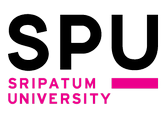Please use this identifier to cite or link to this item:
http://dspace.spu.ac.th/handle/123456789/3235Full metadata record
| DC Field | Value | Language |
|---|---|---|
| dc.contributor.author | Prayong Posriprasert | en_US |
| dc.contributor.author | Nattawut Usavagovitwong | en_US |
| dc.date.accessioned | 2555-03-05T07:20:05Z | - |
| dc.date.available | 2555-03-05T07:20:05Z | - |
| dc.date.issued | 2006 | - |
| dc.identifier.citation | Journal of Architectural/Planning Research and Studies, Faculty of Architecture and Planning, Thammasat University (2006) | en_US |
| dc.identifier.uri | http://dspace.spu.ac.th/handle/123456789/3235 | - |
| dc.description | บทความวิชาการระดับชาติ สาขามนุษย์ศาสตร์และสังคมศาสตร์ | en_US |
| dc.description.abstract | “Baan Mankong” program is presently the government’s major policy in urban poor housing development in Thailand, undertaken by Community Organization Development Institute (CODI). The main strategy of the program is to upgrade living conditions, secure tenure as well as community capacity building through communities’ self-proposed projects and people participation process. This paper is derived from the experience in the development practice of a case study on Bang Bua canal in Bangkok, where on both sides of the waterfront are presently illegally occupied by a group of neighborhoods. These communities have invaded into public land and settled their housing trespassing into the canal. The previous attempts by the local authority to evict the waterfront urban poor communities, for being the cause of water pollutions and other associated environmental problems, had led to a long conflict in urban development. To achieve the goals of sustainable community development, it is vital that not only the core problems of urban poor housing such as the lack of secure tenure and development funding are systematically solved, but also to evoke residents’ participation and people awareness on environment related issues. The Bang Boa community development scheme under the “Baan ManKong” program is expected to highlight initial guidelines and strategies for urban poor settlements’ redevelopment of other waterfront area of Bangkok. This paper will discuss how the process of community capacity building and empowerment have been undertaken and will be initiated, particularly in establishing various networks as a significant development strategy | en_US |
| dc.description.sponsorship | มหาวิทยาลัยศรีปทุม | en_US |
| dc.language.iso | other | en_US |
| dc.publisher | Thammasat University | en_US |
| dc.subject | Secure tenure | en_US |
| dc.subject | Community network | en_US |
| dc.subject | Institutional cooperation | en_US |
| dc.subject | Stakeholder participation | en_US |
| dc.title | Communities’ Environment Improvement Network: Strategy and Process toward Sustainable Urban Poor Housing Development | en_US |
| dc.type | Article | en_US |
| Appears in Collections: | ARC-02. บทความวิชาการ/วิจัย (วารสารระดับชาติ) | |
Files in This Item:
| File | Description | Size | Format | |
|---|---|---|---|---|
| JARS4 2051_70.pdf | 334.16 kB | Adobe PDF | View/Open |
Items in DSpace are protected by copyright, with all rights reserved, unless otherwise indicated.
